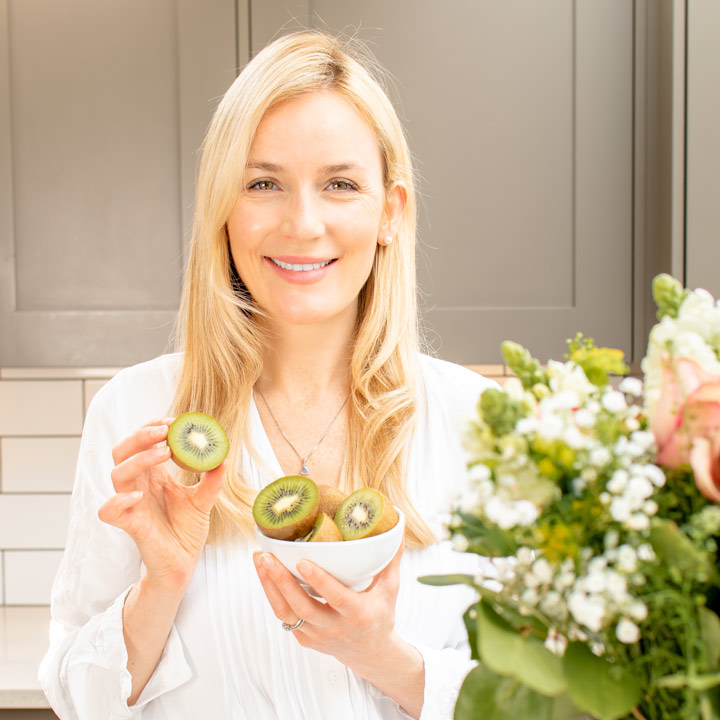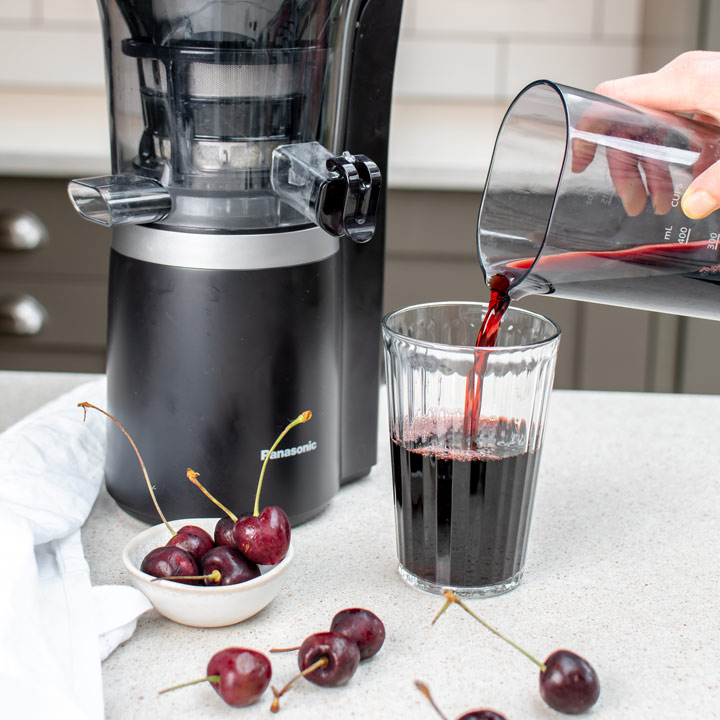A good night’s sleep is the cornerstone to supporting our inner well-being. Chronic sleep deprivation is known to increase the risk of health conditions such as obesity, diabetes, and cardiovascular disease. Whilst the secret to getting more shut eye can be unique to us all, what we eat may help us to drift off faster! Wind down into that sleepy slumber with these 10 natural techniques…
1. Be mindful of heavy meals just before bed
Did you know that heavy and high-fat meals just before bed have been shown to disrupt our quality of sleep along with our ability to fall asleep (1)? For some, laying down too soon after eating may trigger indigestion and heartburn which can keep us up at night (2). With our busy lifestyles it may seem tempting to indulge in our largest meal in the evening, however sleep and digestive health can be supported by consuming dinner at least three hours prior to bed.
2. Maximise your sleep hormone with these key nutrients
Tryptophan is a building block of protein, that converts within the body to our sleep hormone melatonin. Some protein-rich foods such as chicken, turkey, yoghurt, milk, eggs, nuts and seeds are excellent sources of tryptophan. Enjoying these foods alongside carbohydrates can maximise the amount of melatonin we produce. Why not use the Panasonic Combi Oven to whip up these chicken tenders with sweet potato fries? This evening meal provides the perfect balance of tryptophan and carbohydrate for that peaceful slumber.
3. Harness the power of kiwi fruit
Kiwi may be more than just a delicious fruit as emerging research suggests it may have benefits for sleep! An exciting study revealed that consumption of two kiwi fruits before bed over a month
improved sleep quality by 42% and decreased the time it took to fall asleep by 35% (3). Whilst more research is required to understand the possible mechanism for these sleep-inducing effects, it’s thought to be due to kiwi fruit’s great nutrition profile. In particular, it’s rich antioxidant, serotonin and folate content.
4. Enjoy some Montmorency tart cherry juice
Montmorency tart cherry juice is deemed a functional food due to its unique nutrition profile. This fruit is currently under research for potential sleep-inducing benefits due to its rich content of melatonin and health-promoting polyphenols (4,5). One study in those with insomnia showed that consumption of tart cherry juice for 2 weeks increased total sleep time by as much as 90 minutes (6).
Why not use Panasonic’s Slow Juicer to make fresh cherry juice at home? Slow juicing squeezes every last drop of juice from the fruit which helps to retain those heat-sensitive nutrients and antioxidants.
5. Don’t fall short of this calming mineral
Magnesium has been dubbed as nature’s tranquiliser and with good reason. It’s important for the contraction and relaxation of muscles, along with nerve health which sends signals to the brain. Exciting research has associated magnesium with better sleep duration which may be due to its influence on neurotransmitter production (7,8). Magnesium is a component of chlorophyll, the green pigment found in plants, therefore green leafy veg is a commonly cited source of this mineral. Other food sources include nuts, wholegrains, fish, meat and dairy products.
6. Turn to nature for a natural sleep remedy
Why not harness the power of plants as a natural solution for better sleep? Valerian Root has long been used as a sleep aid in traditional medicine. It’s thought that this extract may help to increase GABA in the brain, a neurotransmitter which helps to keep anxiety in check (9). On the other hand, lemon balm extract may have calming and relaxing effects on the body, a perfect combination to help us drift off faster (9, 10). *Always seek guidance from your doctor before taking plant extracts and supplements to ensure there are no contraindications with medications or diagnosed health conditions.
7. Be mindful of caffeine
Caffeine not only disrupts our ability to fall asleep but also affects our quality of sleep (11,12). Our genetics determine our ability to metabolise caffeine and how quickly we can excrete it from the body. ‘Fast metabolisers’ tend to excrete caffeine more rapidly in comparison to ‘slow metabolisers’, which is why sensitivities to caffeine can differ between individuals. This means that some people can tolerate caffeine close to bed whilst others find that even small amounts make them jittery and anxious (13). The half-life of caffeine (the time it takes for half the caffeine to be eliminated from the body) may be anywhere from 2-12 hours (14). Therefore, minimising consumption before bed is imperative for a more restful night’s sleep.
8. Consider some non-alcoholic beverages
Alcohol can suppress rapid eye movement (REM) sleep, which is particularly pronounced during the second half of the night (15). Any disruption in REM sleep can lead to daytime lethargy, poor concentration and may even affect mood. Whilst alcohol can be enjoyed in moderation, minimising consumption can support with sleep quality. Why not try some non-alcohol options instead such as this delicious non-alcoholic pineapple passion mocktail recipe?
9. Harness the power light
Our circadian rhythm is an internal clock which helps our body to distinguish between night and day whilst regulating our sleep-wake patterns. By stepping outside to receive morning daylight, along with minimising blue light from screens just before bed, we can support our circadian rhythm and ultimately aid with better sleep.
10. Avoid high-impact exercise just before bed
Engaging in regular exercise can allow for a deeper, restful sleep, however, it’s best to minimise any high-intensity exercise just before bed. A review study illustrated that whilst evening exercise may have benefits to sleep, high-intensity exercise within the hour before bed resulted in deleterious effects on both the time it took to fall asleep along with sleep quality (16). This in part may be because high-intensity exercise can temporarily raise levels of our stress hormone (cortisol) which is not conducive to sleep. On the other hand, lower-intensity exercise such as walking, yoga, pilates or even some simple stretches can calm the body and mind preparing us for that deeper and more restful sleep.
References:
1.https://pubmed.ncbi.nlm.nih.gov/22171206/
2.https://www.nhs.uk/conditions/heartburn-and-acid-reflux/
3.https://pubmed.ncbi.nlm.nih.gov/21669584/
4.https://www.ncbi.nlm.nih.gov/pubmed/22038497
5.https://www.ncbi.nlm.nih.gov/pubmed/20438325
6.https://www.ncbi.nlm.nih.gov/pmc/articles/PMC5617749/
7.https://pubmed.ncbi.nlm.nih.gov/27702409/
8.https://pubmed.ncbi.nlm.nih.gov/23853635/
9.https://www.ncbi.nlm.nih.gov/pmc/articles/PMC4394901/
10.https://www.ncbi.nlm.nih.gov/pmc/articles/PMC3230760
11.https://pubmed.ncbi.nlm.nih.gov/27377580/
12.https://pubmed.ncbi.nlm.nih.gov/24235903/
13.https://pubmed.ncbi.nlm.nih.gov/37029915/
14.https://pubmed.ncbi.nlm.nih.gov/24235903/
15.https://www.uptodate.com/contents/cardiovascular-effects-of-caffeine-and-caffeinated-beverages
16.https://www.ncbi.nlm.nih.gov/pmc/articles/PMC5821259/
17.https://pubmed.ncbi.nlm.nih.gov/30374942/
























